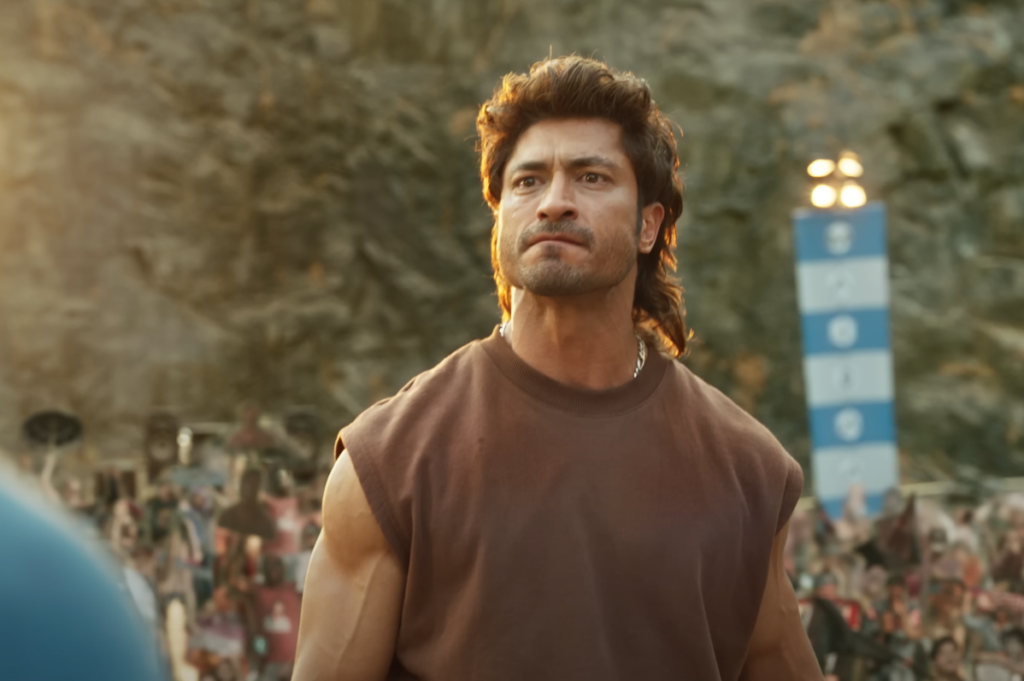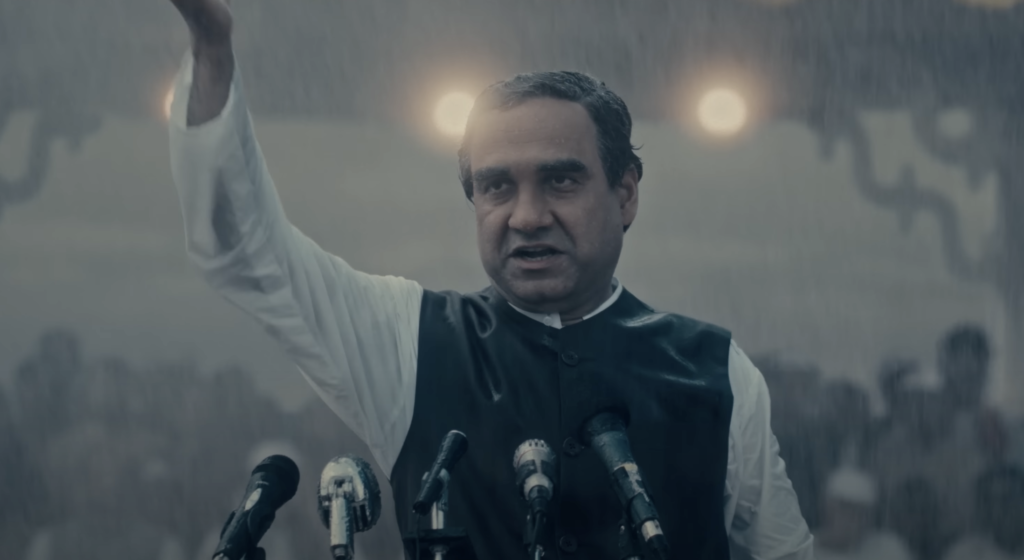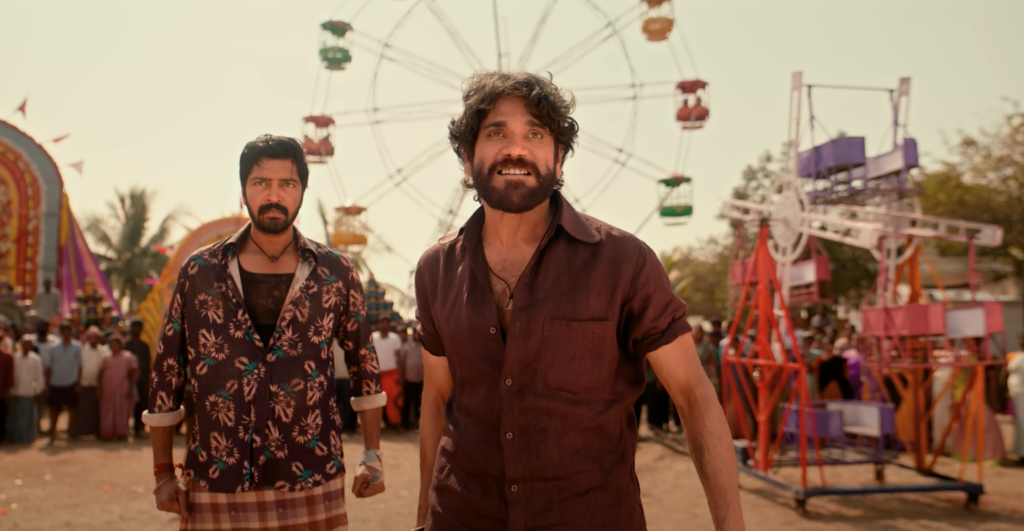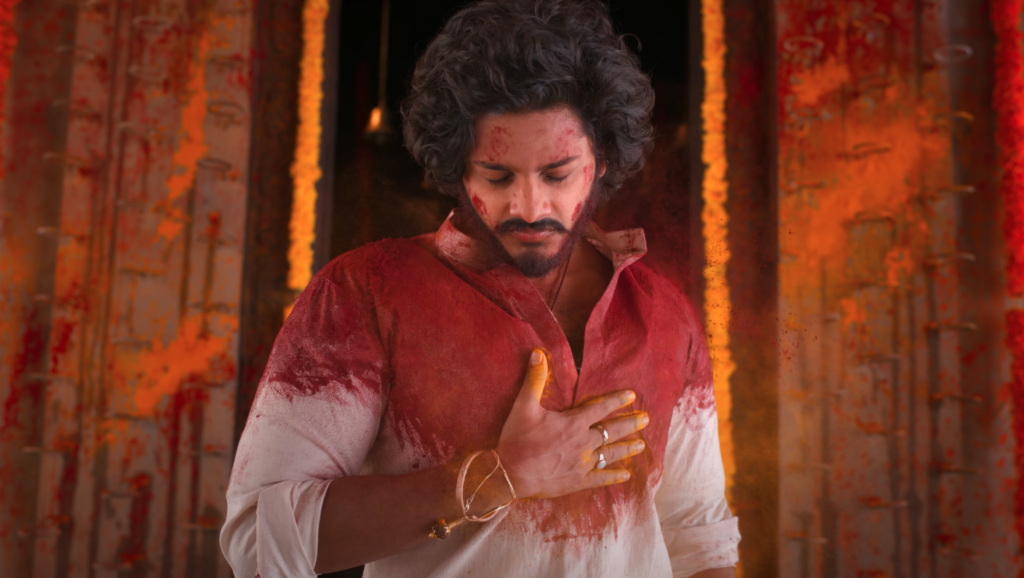Telugu Movie Review: Kalki 2898 AD impresses visually, but struggles to develop storytelling momentum

Hollywood industry observers have widely noted the significant absence of a traditional sci-fi/fantasy spectacle to kick off this year’s strike-depleted summer movie season; Kingdom of the Planet of the Apes and Furiosa: A Mad Max Saga are the closest you’ll get, and a far cry from Marvel-style escapism. It seems only fitting that the increasingly competitive-minded Indian film industry would have an answer for this drought in Kalki 2898 AD. The film, one of the biggest in Tollywood history, is not only a lore-packed fantasy of epic proportions, but one on track to set numerous box office records both in India and abroad this coming weekend. Now, don’t expect non-Indian audiences in the West to flock to this in droves – its mythology is perhaps a bit too culturally-specific for real crossover potential – but the diaspora alone may propel Kalki 2898 AD into the Top 5 at this weekend’s North American box office.
The above may read like an excessive amount of money talk and industry analysis for a piece intending to be a movie review, but I think it’s important to establish upfront the kind of tentpole that Kalki 2898 AD is aspiring to be. During the first 45 minutes of the film especially, it’s very clear that writer/director Nag Ashwin is aiming for a Marvel-type universe, no matter how steeped in Indian texts like the Mahabharata the story is. The style and construction of the movie feel very Hollywood, which makes its commercial ambitions inextricable from its artistic aims. I will be curious if one of the main criticisms among Indian viewers is that it all feels a bit too Hollywood, even if they’re enthralled by the extreme lengths the film goes for fan service (including more star cameos in a single film than I’ve seen since the third Austin Powers). All of this is to say, the way Ashwin goes about world-building suggests he’d like the picture to be viewed on the same plane as any of the biggest international blockbusters out there.
Hindi Movie Review: Article 370 is a solid spy thriller undone by relentless political posturing

Following the recent Main Atal Hoon, Aditya Suhas Jambhale’s Article 370 is the latest in an election season wave of Bollywood films that celebrate the accomplishments of the BJP, under the thin guise of a uniting sense of Indian nationalism. Unsurprisingly, Indian critics have largely seen the film through the lens of their own politics; depending on whose assessment you read, it’s either a riveting political thriller or a propaganda piece liberally mixing facts and fiction. Audiences, in line with the BJP’s strong levels of current popularity and the self-selective nature of ticket-buying, have largely embraced the movie, catapulting it to box office success that caught some industry prognosticators by surprise.
As an outside observer stationed in the West, I found the movie’s politics to be entirely unengaging: too obvious and partisan to be thought-provoking, but not over-the-top enough to fuel the kind of rah-rah, saber-rattling entertainment that made Fighter so enjoyable for me. Just as I was getting into the rhythm of the story, there would come another explicit political appeal that took me out of the proceedings and reminded me that “this movie isn’t for you.” Which is not to say that I know enough to have strong feelings about the positions the film stakes out, but rather, that it adopts them with such inelegance that this interferes with the fluidity of its storytelling. A movie like Fighter goes so hard on the propaganda that it becomes part of its aesthetic; Article 370 is still trying to sell itself as a straight-ahead spy thriller, which makes its digressions into virtue-signaling feel like disruptions.
Hindi Movie Review: Crakk: Jeetega… Toh Jiyegaa has the makings of a cult classic, but runs out of gas well before the end

There’s an unhinged, madcap energy to Crakk: Jeetega… Toh Jiyegaa that I couldn’t help but admire, as I love movies that enthusiastically commit to concepts that others would consider embarrassingly outlandish. The film has the same kind of high-adrenaline, logic-out-the-window aesthetic as you might only see stateside in a Joseph Kahn or Neveldine/Taylor production. Which is to say, Crakk belongs firmly in the “I can’t believe they spent this much money and painstaking effort making something this patently absurd” action subgenre. Its title – the word “Crack,” but arbitrarily spelled with two k’s for no particular reason other than to suggest a film that breaks the rules – tells you everything you need to know about its overall aesthetic. If that sounds like a good time to you, it probably will be – at least for an hour or so.
The film’s manic energy, propelled both by the filmmaking and lead Vidyut Jammwal’s entirely straight-faced embodiment of the protagonist (whether he’s completely oblivious to the movie’s absurdity or just committed to the bit, we’ll never truly know), is really the main source of appeal here. The story itself is as bare-bones as action narratives come. Jammwal plays Siddhu Dixit, who calls himself an “extreme sports” junkie but for all practical purposes is really more of a daredevil with a death wish. He makes the Free Solo guy look like a garden-variety mountain climber. We meet Siddhu as he pulls off crazy stunts hanging out the windows of a train, a pastime he’s seemingly had for most of his life. Siddhu makes videos of his illegal tricks in hopes of being recruited for Maidaan, an underground competition for likeminded athletic dumbasses.
Hindi Movie Review: Teri Baaton Mein Aisa Uljha Jiya satirizes the raging A.I. debate with irresistible rom-com hijinks

The “robot woman” subgenre has certainly had a notable impact on culture worldwide, spanning landmark titles from The Stepford Wives to Ex Machina, but there are actually fewer of these movies than you’d think. The list gets even shorter if you winnow it to just those films that are not strictly about the perils of robot technology, i.e., those that attempt something more than just dystopian science-fiction. I point this out simply to say that the time is ripe for a movie like Teri Baaton Mein Aisa Uljha Jiya, which definitely has its fair share of cautionary points to make in the end, but spends much of its runtime thriving as a frothy, off-kilter romantic comedy between a man and a female-appearing robot. Especially with all the media discourse of artificial intelligence’s role in present-day civilization, this subgenre feels like the right well to go back to in our current moment. Leave it to Bollywood to get there first.
But the movie doesn’t just feel like it’s seizing upon the zeitgeist; topicality aside, it chiefly succeeds as pure entertainment. Sometimes it’s aggressively silly, yes, but this is the type of good-natured, mass-appeal amusement that moviegoers used to love before they got overly self-conscious. The setup is simple, but satisfying: protagonist Aryan (Shahid Kapoor) is a brilliant robotics programmer whose personal life lacks the excitement of his coding innovations, marked by a refusal to marry any woman his family presents to him. Fortunes change, however, when Aryan’s U.S.-based boss and aunt, Urmila (Dimple Kapadia), introduces him to her lovely assistant Sifra (Kriti Sanon) on a business trip. He’s immediately struck by her – she’s perfect for him in every way – but the only problem is, Sifra actually stands for “Super Intelligent Female Robot Automation” (brilliant movie scientists just have a way of picking the lamest acronyms ever for their inventions!). Aunt Urmila had to test her technological masterpiece on Aryan without revealing the secret behind “her.”
Hindi Movie Review: Fighter is another top-notch blockbuster crowd-pleaser from Siddharth Anand and Hrithik Roshan

Much like its clear source of commercial inspiration, Top Gun: Maverick, Siddharth Anand’s Fighter knows how to play to audience tastes with filmmaking that’s skillful and self-aware enough that it never feels pandering in an icky way. And while it may be playing in the same sandbox as the Tom Cruise megahit, it entirely justifies its own existence, strongly executing each genre component of its masala mashup (drama, action, romance, buddy ensemble). From very early on in the movie, we know exactly how it is going to end, but that doesn’t make us any less engaged by what it’s dishing out. Fighter is perfectly calibrated popcorn entertainment.
Co-writer/director Anand brought us last year’s Pathaan and 2019’s War, and he once again proves himself to be one of Bollywood’s cleanest commercial craftsmen. That might seem like a backhanded compliment, insofar as it implies a “sanitized” body of work aimed at the widest audience possible. But I mean it as a sincere commendation: it isn’t easy to consistently deliver movies catering to mass tastes that retain their elegance and their vitality. This achievement was a big part of what made Top Gun: Maverick such a big worldwide word-of-mouth sensation, and Anand is able to achieve the same feat in his films. Yes, they follow the expected beats, but they do so in a way that reminds us of why the beats exist in the first place.
Malayalam Movie Review: Malaikottai Vaaliban offers rousing action and visual references to push past wobbly drama, unsatisfying ending

Malaikottai Vaaliban begins with a strong evocation of the spaghetti Western, but its genre influences certainly do not stop there. (Somewhat peculiarly, it’s the second Indian film of the month to pay homage to the ’60s-born subgenre, following Captain Miller.) This is a movie steeped in visual references, made by a director (Lijo Jose Pellissery) whose love for international cinema overflows each frame. There are also several sequences that vividly recall both samurai and wuxia films, not just in terms of story content, but film language. Many recent Indian movies have felt like something Quentin Tarantino might have cooked up in terms of their stories, characters, and depictions of violence, but Malaikottai Vaaliban is the first that recalls Tarantino in the way that it fully leverages composition, color, and sound to create a subversive tribute to beloved films of the past.
The story itself is simple: a few hundred years ago, Malaikottai Vaaliban (played by Mohanlal, icon of Malayalam cinema) is a vagabond warrior who travels from one village to the next to challenge the strongest fighter they each have. Possessing both gravity-defying strength and delicate action finesse, he has never lost a match. Even though Vaaliban could easily use his might to reign over one of these towns for years to come, he chooses to simply celebrate each victory for an evening and beds a new woman before moving on, as though staying in motion is his sole moral obligation. His only two fellow travelers are his mentor and adoptive father Ayyanar (played by Hareesh Peradi) and Ayyanar’s son Chinnappayyan (played by Manoj Moses). Well, that is until Chinna finds a woman of his own, whom he can’t bear to abandon; suddenly the whimsical Jamanthipoovu (played by Katha Nandi) is along for the ride as well.
Hindi Movie Review: Main Atal Hoon is a hagiographic, overly simple biopic elevated by a strong lead performance

I entered Main Atal Hoon knowing just the basics of the political legacy of Indian Prime Minister Atal Bihari Vajpayee, and I left the movie only barely more educated on him. Sure, over the course of nearly two-and-a-half hours, the film takes viewers through the major beats of Vajpayee’s life – from childhood to just before his death – and captures some of the defining moments of his ascent to PM and his six years in office. But this is a quintessential example of a political biopic that aims less to examine the nuanced views, policy positions, and implementation strategies of its subject and his team, and more to simply reinforce that he was an amazing leader who forged his own path. This is pure hagiography for the fans; if you want to really learn about what made Vajpayee such a force in Indian politics, you are better off using the same amount of time reading Internet sources.
I’m far from opposed to biopics that exist mainly to celebrate the life and work of an icon, but there has to be some substance to the celebration. Main Atal Hoon may cover a lot of ground, but it never really gives the viewer all that much insight into Vajpayee’s motivations to lead or why he held the values he did. The film often shows us how incredibly strong he is in his convictions, devoting his life to the Sangh as a young man, but it doesn’t give us much of the why behind said convictions. Sure, we get a fairly paint-by-numbers depiction of British rule in India and some hints of Hindu spirituality, but little more. By not adequately illuminating the origins of the man’s beliefs, the film narrows its audience to only those who accept that such beliefs are wonderful at face value.
Telugu Movie Review: Naa Saami Ranga is an electric cocktail of family and village drama, propelled by Nagarjuna’s charisma

Shakespearean family drama abound in Naa Saami Ranga, though that’s not to say the film ever becomes unbearably tragic. Don’t get me wrong, there are some incredibly intense plot developments, as well as some devastating fates that characters would certainly have preferred not to have suffered. But at its essence, this is an energetic, pleasurable spectacle – a play on Shakespearean character dynamics that doesn’t necessarily carry the same tone over. It’s very early in the year yet, but for now, Naa Saami Ranga stands out as the most consistently entertaining attempt at a “mass appeal” film in 2024.
The directorial debut of longtime choreographer Vijay Binni, the film is brimming with musicality – and not just in the solid song-and-dance numbers. Even the most dialogue-heavy scenes carry a certain propulsive energy to them, which feels like a direct byproduct of Binni’s extensive experience in staging and presenting Tollywood stars. Sometimes, a movie just feels and moves differently than most of the other films in the marketplace, and it’s hard to put your finger on exactly why. Na Saami Ranga fits this description, and the credit goes to Binni.
Telugu Movie Review: Saindhav is watchable in spite of its gangster cliches, thanks entirely to lead Venkatesh

Saindhav is an amalgamation of a lot of the major tropes in today’s Telugu cinema: a reformed hero with a dark past, a close-knit father and young daughter mourning the loss of Mom, an unstable gangster underworld brimming with power struggles, a backdrop of global terrorist threats. For the most part, the movie doesn’t even try to elegantly weave all of these disparate elements together; it combines them in as easy and efficient a manner as it possibly can. The script is lazy, and much of the finished film’s construction is as well. But Venkatesh is so good at selling this sloppily-written mess in his lead performance that – at least for a while – the movie holds together well enough to keep the audience’s attention.
In his prior life as a gangster henchman, our hero used to be called “SaiKo,” as in psycho – an early “reveal” that the movie initially seems to be protecting, despite it being patently obvious that the name Saindhav Koneru would be cleverly abbreviated in this way. Saindhav swore off his life of crime around the time of his wife’s death, which has left him raising their young daughter Gayathri (played by Ssara Palekar) as a single dad. He’s now a humble crane operator at the local port. But Saindhav’s past can’t help but come back to haunt him, as two tragedies simultaneously unfold. First, Saindhav’s past associates begin supplying local kids with weapons, recruiting them for terrorist groups, crossing a redline he had set when he left the organization. Second, Gayathri is diagnosed with the rare disease SMA (spinal muscular atrophy), requiring a life-saving injection that costs ₹17 crores, an exorbitant sum that no simple crane operator could ever afford.
Telugu Movie Review: Hanu Man offers a winning superhero saga for kids, but it’s a less compelling choice for adults

Every so often, I encounter a new movie that I wish I could show my 8-year-old self. Hanu Man is the latest example. The boy who ate up juvenile fare like 1995’s Mighty Morphin Power Rangers: The Movie and 1998’s Godzilla would have absolutely adored this light-as-a-feather superhero origin story, even as his reading level likely would have made the subtitles a challenge. At 34, I wasn’t immune to Hanu Man’s playful charms, but I could only invest so much in an odyssey this simple and silly. If you have kids ages 7-12 who are up for a Telugu language adventure, it’s a must-see for the family; others may develop that sinking “this just isn’t made for me” feeling as the movie progresses.
The best family films, of course, are able to drive equal levels of investment among parents and kids, simultaneously speaking to both on their own unique levels. This requires an unassumingly high amount of filmmaking skill. Hanu Man is not one of these movies; it builds a logic-defying world that only those without fully-developed frontal lobes will be able to fully immerse themselves in. You’re bound to approach the movie from a certain distance if you’ve already made it into adolescence; its childishness is readily apparent early on, though not until after a pretty audacious prologue sequence. Granted, Hanu Man should still strike adults as a likable and amiable piece of family-friendly filmmaking, but perhaps better as a babysitter than as a personal source of entertainment.

